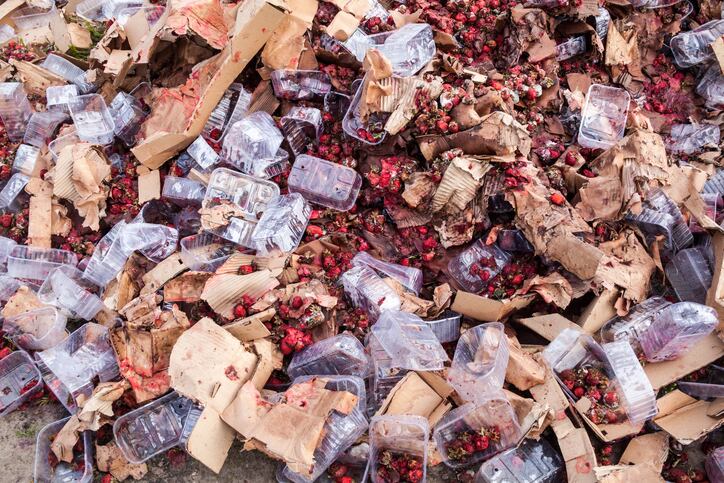Researchers at Brunel University London and Ghent University studied production processes at 47 food manufacturers in Belgium to assess where highest losses occurred during production.
Human error accounted for 10.9% of all food waste, while product changes – switching the food output of a production line – was the cause of 13% of total food waste. A further 8.7% was attributed to product defects, while 6.4% of waste was due to buyer contracts and changes in demand.
Dr Manoj Dora, senior lecturer and director of large collaborative projects at Brunel, told FoodNavigator that the study, published in the journal Annals of Operations Research, suggests food waste at a production level is largely avoidable. “Food waste is a management issue and what is needed is a culture change. First, recognise that there is a problem, measure it and then manage it.”
One of the most interesting findings, Dr Dora continued, was how unaware many manufacturers are of how much food they were wasting.
“We were amazed to see how little companies didn’t actually measure how much they were throwing away, and they were surprised to see in monetary terms how much they’re losing because of food loss,” Dr Dora, who led the study, noted.
Food waste snapshot
In the EU, around 88 million tonnes of food waste is generated annually. This represents 20% of total food produced in the bloc, with associated costs estimated at €143bn.
According to data from the European Commission, production and processing sectors contribute 30% of total food waste.
Smaller companies suffer larger losses
The researchers gathered data from a wide variety of companies, ranging from ready-meal manufacturers producing 6,300 tonnes of food per year, to drinks manufacturers producing nearly 130,000 tonnes of products per year. On average, the manufacturers suffer a loss of one tonne of food for every 35 tonnes they produce.
They identified some interesting differences between the performance of small- and large-scale companies.
Companies with production of under 10,000 tons per year had higher losses than large-scale companies producing more than 10,000 tons annually, at 2.92% and 2.84% total food loss respectively.
However, human error contributed a greater proportion of food waste in large companies, while issues with shape and size were the main issue impacting food waste at smaller companies.
According to Dr Dora, tighter management practices and standardised procedures could help cut waste linked to human error. “At most of the companies we went to, there was no standardisation of work or visual management in place,” Dr Dora observed. “In many instances, there wasn’t proper training or a standardisation of work being applied in their workplace, and as a result there was a greater tendency towards errors, and therefore, more food waste.”
Supply chain collaboration
Improved supply chain collaboration could also have a big effect on how much food is wasted between suppliers, manufacturers and retailers.
Dr Dora and his team discovered the relationship many companies have with their suppliers and customers represents an area of significant loss.
“When dealing with suppliers, it’s important when you order, how you order, and how you keep the produce,” said Dr Dora.
“But then dealing with the buyers – the supermarkets – is also critical. Let’s say a retailer orders a thousand kilos of sausages predicting good weather, but then it clouds over and rains, so retailer cut down their demand. This would mean the manufacturer bears these losses, and there is significant waste.
“This shows a lack of collaboration in the supply chain – the farmer, the processor and the buyers aren’t in sync. They’re talking, but not enough to predict each other’s demand and supply.”
The answer, Dr Dora suggested, is improved collaboration and communication. “What is urgently needed is a transparent collaboration and appropriate measurement systems. Moreover, the implementation of quality improvement tools such as lean management in the production process can significantly reduce food loss.”
Source: Annals of Operations Research
Published online ahead of print:
"Sustainable Operations in Food Loss - Evidence from the Belgian food processing industry"
Authors: Dr Manoj Dora et al




